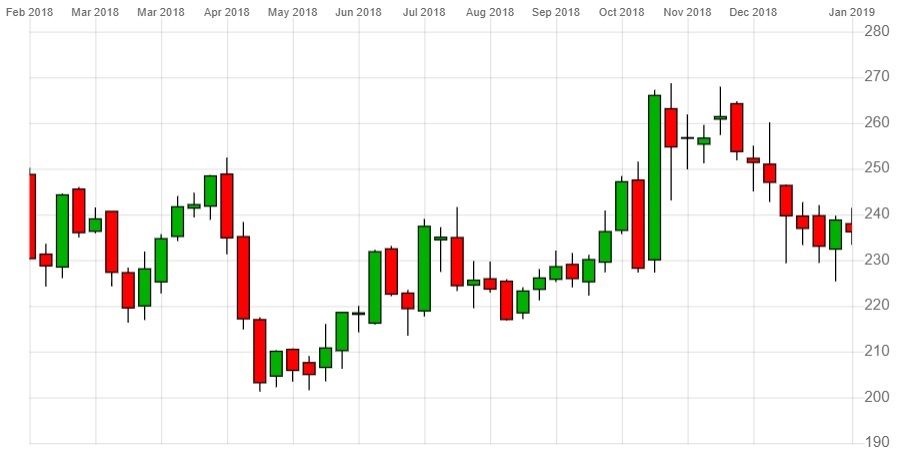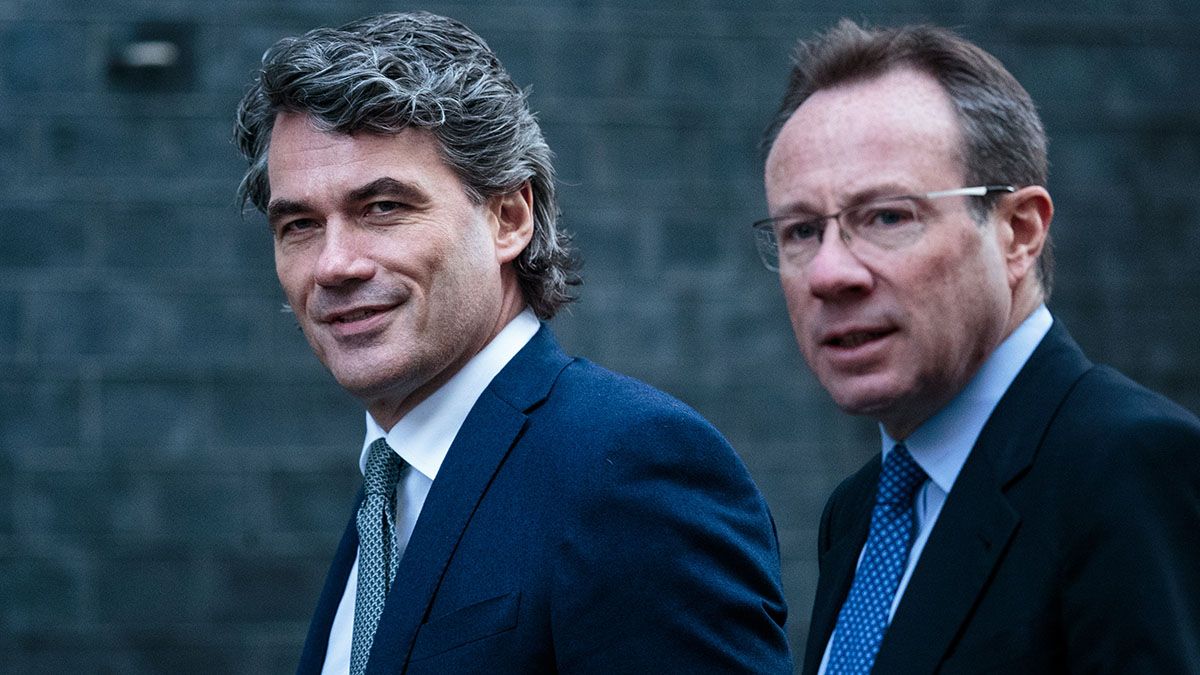After two turbulent years, BT’s [BT.A] strong third-quarter earnings saw signs that it had turned a corner. Profits were up 20%, consumer business was healthy, and outgoing CEO Gavin Patterson signed-off with a pledge to continue 5G rollout.
This is in stark contrast to last May when investors couldn’t sell the stock fast enough. After bottoming out in the summer, BT’s share price rallied to close the year at £240.05, outperforming a Brexit-ravaged FTSE 100 along the way. Since the start of 2019, the share price has been trading relatively flat near the £237 level.
What happened at BT’s recent earnings announcement?
Last week’s third-quarter results saw a company in vigorous health. Pre-tax profits came in at £2.1bn, while revenues of £5.93bn beat expectations for the three months to December, helped by higher handset costs and a recent price hike. However, it wasn’t all good news as the company’s enterprise business saw a drop in sales and its Openreach network absorbed a one-off £180m regulatory charge.
Promisingly, full-year EBITA guidance of £7.3bn to £7.4bn was at the top end of expectations.
“We continue to expect regulation, competition, cost inflation and legacy product declines to impact in the short term before being more than offset by improved trading and cost transformation by our 2020/21 financial year,” CEO Gavin Patterson said during the earnings call with investors.
“We continue to expect regulation, competition, cost inflation and legacy product declines to impact in the short term before being more than offset by improved trading and cost transformation by our 2020/21 financial year” - BT CEO Gavin Patterson
New boss bounce
One of the first challenges new CEO Philip Jansen will face when he takes over from Patterson this month is what to do with BT TV.
Having spent vast amounts on Premiership Football rights and other sporting events to compete with Sky – and, increasingly, Amazon Prime and Netflix – BT TV has failed to stand out in a saturated market. In the last quarter, the company lost 16,000 subscribers, eradicating the 14,000 net gain seen in the previous three months of the year.
With subscriber numbers falling, Jansen might baulk at shelling out more money for unwatched sporting events.
16,000
Number of BT subscribers lost in Q3
The true cost of 5G
BT will be the first telecoms provider to offer the UK ultra-fast 5G through offshoot EE. But being the first to launch means making sure the necessary infrastructure and technology are in place before going live. It will then have to migrate current 4G customers onto the new network, many of whom will be tied into long-term contracts.
In the second-quarter, BT added £140m to capital expenditure in a period that coincided with 5G trials in Canary Wharf. In third-quarter results, capital expenditure was up again, this time at £239m following increased investment in fibre connections and deferment of a government-backed Broadband UK grant.
With BT confirming plans to roll out 5G to the busiest parts of 16 major cities in 2019, shareholders will be looking closely at how much costs rise when next quarter’s results are announced.
Where next for BT?
BT needs to invest in 5G to stay competitive despite the costs. In the long-term, this investment should benefit the share price, even if it hurts profits in the near-term. Other short-term headwinds include tighter regulation, increased competition and, of course, Brexit.
| Market cap | £22.66bn |
| P/E ratio (TTM) | 11.27 |
| EPS (TTM) | 20.40 |
BT stock vitals, Yahoo finance, as at 1 February 2019
In an effort to cut costs, BT have reduced their interim pay out by 5% earlier this year. Obviously not good news for shareholders, but it does allow the company to chip away at its £17.07bn debt pile. This pay-out is covered by 1.5 times profit, which has been moving in the right direction as the company slashes costs. The company will also axe 13,000 jobs over 3 years as it seeks to further reduce outgoings.
With the current share price down almost 11% from last year’s high it could represent good value, providing it can rebound. For income-seeking investors, the telecoms giant is forecast to deliver a divided of 15.2p, a healthy 6.4% yield.
Continue reading for FREE
- Includes free newsletter updates, unsubscribe anytime. Privacy policy





